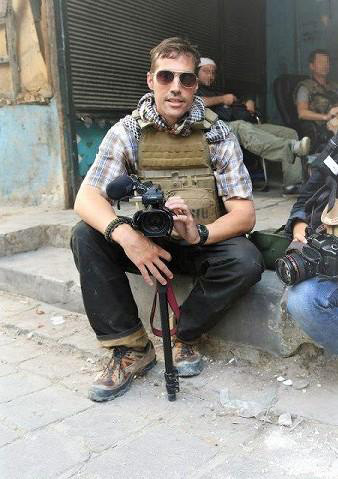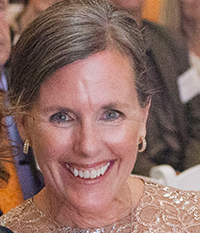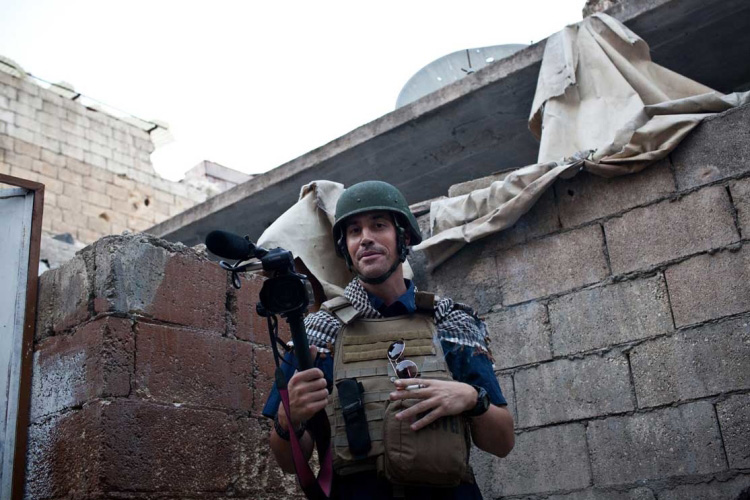Nobody thought it was a good idea for Jim Foley to return to the war-torn Middle East in 2012 as a freelance conflict journalist and videographer following his first kidnapping and imprisonment in Libya. But, tragically, he did.
Driven by a profound calling to tell the stories of the most vulnerable and underserved people in dangerous locations, Foley ventured into an even more dangerous country — Syria. His Thanksgiving Day 2012 kidnapping there led to 20 months of imprisoned torture and ended with his shocking video-taped beheading that ricocheted around the world. This gruesomely launched our stunned world’s awareness of ISIS/ISIL too.
The U.S. government’s disappointing response to the kidnapping and repeated pleas for assistance by Foley’s family, as well as the outpouring of support from across the country, led to the launch of the James W. Foley Legacy Foundation (JWFLF) following his death. His family and friends felt challenged to continue his brave legacy of commitment to the truth and compassion for those without a voice. JWFLF seeks to advocate for all innocent Americans taken hostage abroad, promote journalist safety worldwide, and honor journalists doing courageous work.
As Foley’s mother, Diane, and brother, John, explained in a recent YPO Gold presentation at The Woman’s Club of Evanston, in only five years the foundation has accomplished much, but even more remains to be done.
 The Sundance “People’s Choice” Award winning documentary “Jim: The James Foley Story” is a must-see to understand Foley and the complex dynamics that led to freedom for ISIS/ISIL captives from other countries, but horrific beheadings for Jim, the other Americans and British captives.
The Sundance “People’s Choice” Award winning documentary “Jim: The James Foley Story” is a must-see to understand Foley and the complex dynamics that led to freedom for ISIS/ISIL captives from other countries, but horrific beheadings for Jim, the other Americans and British captives.
In brief, Foley was first imprisoned for 44 days in Libya, in 2011, because he was reporting on the Gaddafi-led government assault against their own people. He returned to the U.S. for a few months following his release. By the fall of 2011, Jim was back in Libya covering the fall of Gaddafi’s regime. But, ignoring pleas by those who cared deeply about him, including those at his alma maters — Marquette University and Northwestern University’s Medill School of Journalism — and the media companies who had worked to facilitate his release — Atlantic Media and GlobalPost (later purchased by Boston’s public radio station WGBH) — Foley soon returned to the Middle East and ultimately migrated to where he could tell stories about the Syrian people under attack by their own government. As brother John, who serves in the U.S. military, tried to explain to Foley, because the U.S. government had no official presence in Syria, it would not be in a strong position to help. Foley spent 2012 going in and out of Syria, reporting on the Syrian people’s willingness to risk all to be free from their oppressive regime.
Foley and British journalist John Cantlie were taken hostage at gunpoint on Thanksgiving Day 2012 as they were headed out of the country. For almost one year, no one knew where Foley was or even if he was still alive. Eventually, though, his captors reached out to Foley’s parents, trying to extort an impossible ransom — 100 million Euros or release of all Muslim prisoners by the U.S. government. According to his mother and brother, the U.S. government repeatedly claimed that Foley was their “highest priority,” while doing nothing and even threatening them with punishment if they paid ransom to Foley’s captors.
Thanks to the foundation’s work — including a ground swell of James Foley memorial awards, the launch of a new curriculum for aspiring journalism students in partnership with Medill at Northwestern, and policies put in place by the government thanks to JWFLF’s advocacy, similar treatment is less likely to happen in the future. Thanks to the establishment of the Hostage Recovery Fusion Cell, the Special Presidential Envoy for Hostage Affairs, and the Hostage Response Group at the National Security Council, the families of kidnapping victims now have more resources at their disposal for government engagement about how to bring their loved ones home. That’s progress, but there is still much to be done.
Sadly, it’s estimated that hundreds of Americans are kidnapped and unjustly detained abroad each year, though no official count exists. At this time, the JWFLF lists a non-exhaustive group of Americans held abroad who have requested their advocacy. These include students, corporate employees, humanitarian aid workers, as well as journalists. JWFLF works on behalf of each of them and their families.
Jim Foley once said, “If journalists lack moral courage, we don’t have journalism.”
In spite of her personal loss, Diane Foley reminds us that press freedom is the cornerstone of our democracy. She explains, “It is essential that the United States have the back of our brave citizens who work or travel internationally and protect its freedom of speech.”
But the Foley family’s impact is even greater than the foundation’s work. Mollie Stromberg, who helped organize the YPO Gold event, has known the Foley family since shortly after Jim’s death and greatly admires their journey from unspeakable tragedy to hope and determination to help.
“The Foley family’s efforts to champion on and help others is one that speaks to all of our hearts.” She explains, “It challenges every one of us to face our personal struggles and believe that if Jim’s family and friends can have strength and persevere, we all can too.”
You can help, as well as be inspired by their efforts, as the audience learned at the YPO event.
By simply spreading the word about the ongoing kidnapping threat and reminding others that Americans still are held hostage, you make a difference. Any expertise you can donate will be appreciated too. And of course, monetary donations will be gratefully received. Any amount is welcome, but gifts at the following levels create these significant impacts:
- $500 = 1 advocacy trip to D.C. for a hostage family
- $1,500 = ADOPT a freelance journalist for multi-day Hostile Environment/First Aid Training
- $2,500 ($210/month) = a university visit OR conference attendance to implement journalist safety curricula
- $6,000 = increased online access to Foley journalist safety curricula
- $10,000 = ADOPT a U.S. hostage family, including travel expense and advocacy support for 1 year
- $12,000 = 3 D.C. student fellowships to advocate for American hostages and journalist safety
- $50,000 = annual research on U.S. hostage policy to protect us abroad
 Susan B. Noyes is the Founder & Chief Visionary Officer of Make It Better Media Group, which includes Better.
Susan B. Noyes is the Founder & Chief Visionary Officer of Make It Better Media Group, which includes Better.
A mother of six, former Sidley Austin labor lawyer and U.S. Congressional Aide, passionate philanthropist, and intuitive connector, she has served on boards for the Poetry Foundation, Harvard University Graduate School of Education Visiting Committee, American Red Cross, Lurie Children’s Hospital, Annenberg Challenge, Chicago Public Education Fund, Lyric Opera of Chicago, Chicago Symphony Orchestra, New Trier High School District 203, and her beloved Kenilworth Union Church. But most of all, she enjoys writing and serving others by creating virtuous circles that amplify social impact.

